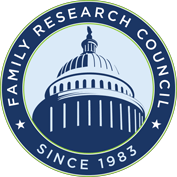After a Puyallup pastor openly endorsed several candidates running in Washington’s November 7th election, many decried he was in violation of the “Johnson Amendment,” which was designed to strip churches and pastors of their free speech rights in the name of “separation of church and state.”
The separation of church and state, however, was never about keeping the church out of politics; it was about protecting the church from government intrusion. The Johnson Amendment, established in 1954, is named after then-Senator Lyndon B. Johnson of Texas. It is a tax provision that prohibits 501(c)(3) organizations from endorsing or otherwise participating in political campaigns. This unconstitutional amendment grants the IRS oversight of churches and their language, bridling the tongues of pastors and crippling their freedom of expression.
“The Johnson Amendment is an unconstitutional restraint on free speech, and is a tool the IRS uses to threaten and censor the First Amendment free speech rights of churches, charities, and their leaders,” Family Research Council wrote.
Since 2008, at the urging of Alliance Defending Freedom, churches have fought back against the Johnson Amendment with Pulpit Freedom Sunday, when pastors around the nation make a point of disobeying the amendment and sending in their sermons to the IRS for review. Not once has the IRS ever revoked a church’s tax-exempt status as a result of engaging in political discourse during Pulpit Freedom Sunday. Their inconsistent application of the amendment has only created more confusion and a need for reform.
“Pastors have a right to speak about Biblical truths from the pulpit without fear of punishment. No one should be able to use the government to intimidate pastors into giving up their constitutional rights,” ADF Senior Legal Counsel Erik Stanley stated. “If you have a concern about pastors speaking about electoral candidates from the pulpit, ask yourself this: Should the church decide that question, or should the IRS?”
Republican legislators have tried time and time again to roll back the harmful applications of the Johnson Amendment through the Free Speech Fairness Act, most recently in 2021, but the common-sense legislation has yet to pass through both chambers of Congress. We are hopeful that with strong conservative leadership we will see the day when the Johnson Amendment no longer hinders churches from being engaged in the political realm – which so deeply impacts the constitutional rights of their congregations.







